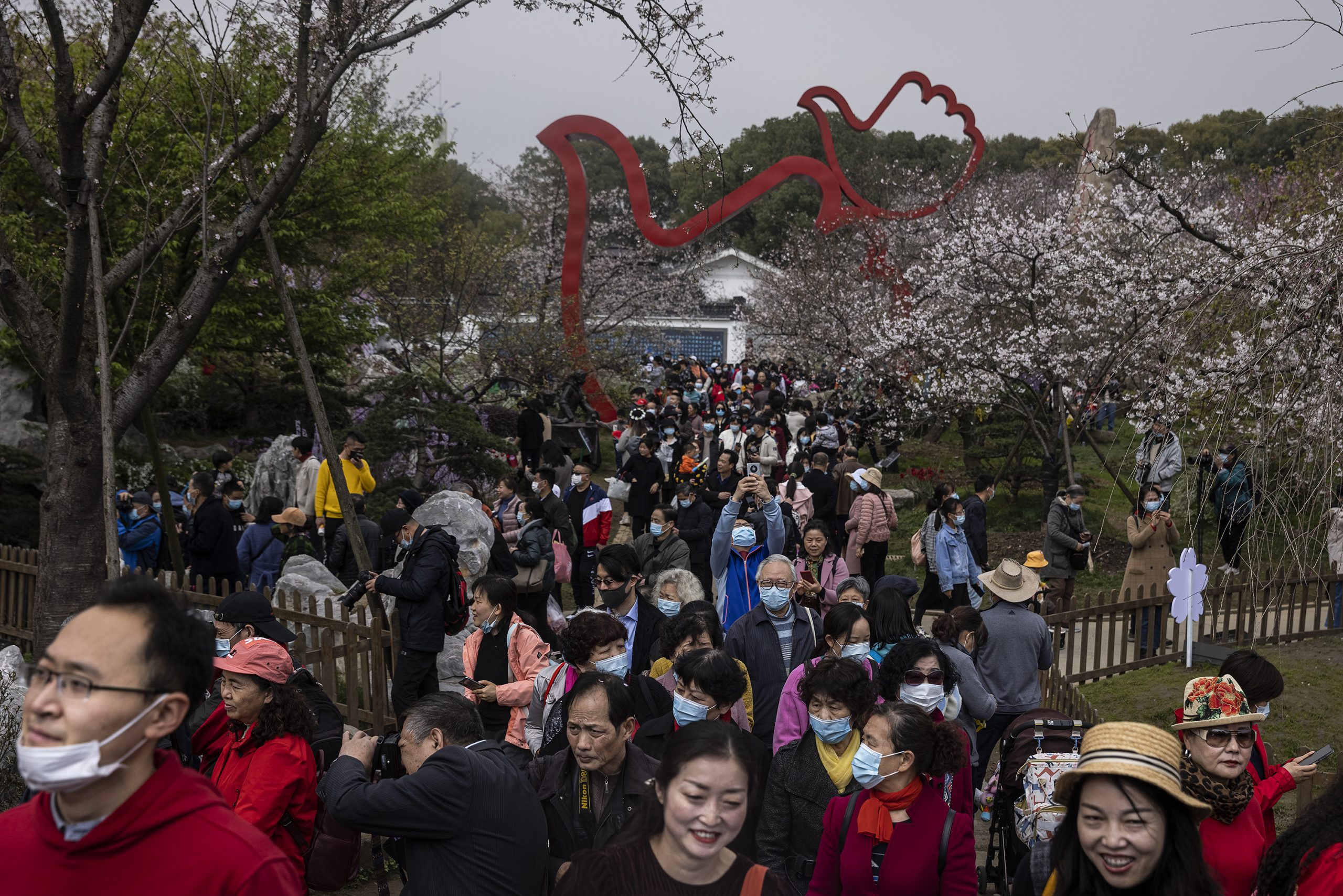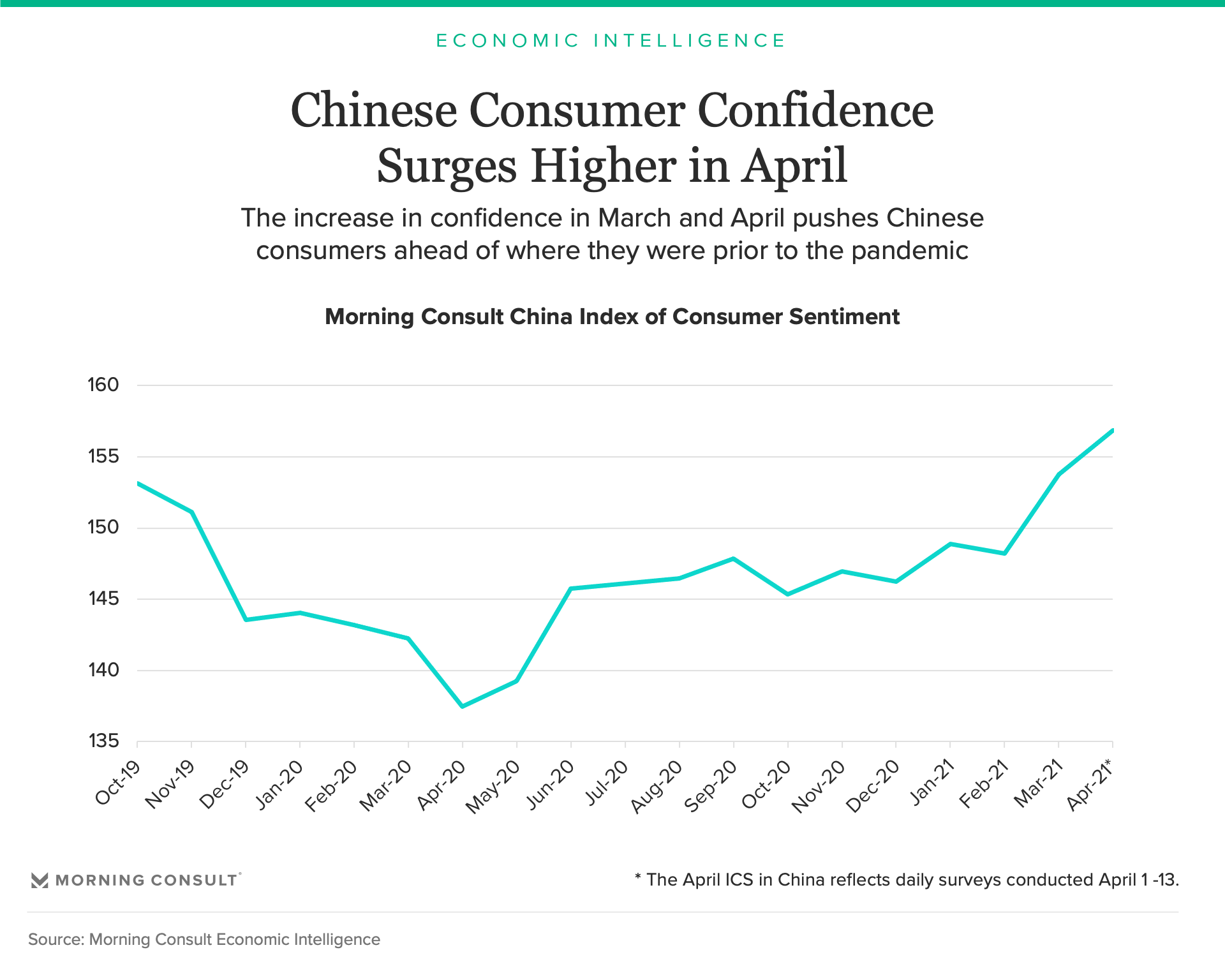Chinese Consumers Emerge From the Pandemic More Confident

For the first time since the onset of the coronavirus pandemic in late 2019, consumer confidence in China shot higher than its pre-pandemic level. Morning Consult’s Index of Consumer Sentiment in China read 156.85 for the first 13 days of April, up 2.36 points from March. This compares with the pre-pandemic figure of 153.14 for the month of October 2019.
April’s increase builds on the 5.54-point improvement in March, the second-largest monthly increase over the past 18 months. The improvements in March and April provide a clear indication that Chinese consumers have emerged from the pandemic even stronger than they were before.

These findings are based on 194,463 surveys conducted in China between Oct. 1, 2019, and April 13, 2021. See the full methodology here.
Analysis
The Chinese economy is firing on all cylinders, but then again it never suffered as much from the coronavirus as Western economies. Dramatic increases in consumer confidence in March and April signal that strong and increasing consumer spending will continue through the end of the second quarter in China.
Chinese consumers have been a source of strength for the Chinese economy over the past 18 months. The looming recovery in service sector spending in the United States and Europe during the second half of 2021 should weaken demand for Chinese exports, testing the ability of the Chinese economy to increasingly rely on its own consumers to drive demand. This turn inwards began prior to the pandemic, and a return to normal in China implies a return to focusing more on its domestic consumer base.
The geopolitical implications of these developing economic trends are equally important. The United States and China are emerging from the pandemic as the true superpowers on the global stage. Once the U.S. economy transitions into a post-pandemic environment, China stands ready to engage with the United States on lingering issues of trade and intellectual property.
A strong and growing Chinese economy also provides Beijing with additional soft power to shape its global image and exert additional influence, particularly across emerging markets in need of financial support. However, as domestic demand increases in China and the United States, both countries risk exposing developing economies to higher food prices and food shortages, particularly in countries like Brazil that continue falling further into economic and political uncertainty.
John Leer leads Morning Consult’s global economic research, overseeing the company’s economic data collection, validation and analysis. He is an authority on the effects of consumer preferences, expectations and experiences on purchasing patterns, prices and employment.
John continues to advance scholarship in the field of economics, recently partnering with researchers at the Federal Reserve Bank of Cleveland to design a new approach to measuring consumers’ inflation expectations.
This novel approach, now known as the Indirect Consumer Inflation Expectations measure, leverages Morning Consult’s high-frequency survey data to capture unique insights into consumers’ expectations for future inflation.
Prior to Morning Consult, John worked for Promontory Financial Group, offering strategic solutions to financial services firms on matters including credit risk modeling and management, corporate governance, and compliance risk management.
He earned a bachelor’s degree in economics and philosophy with honors from Georgetown University and a master’s degree in economics and management studies (MEMS) from Humboldt University in Berlin.
His analysis has been cited in The New York Times, The Wall Street Journal, Reuters, The Washington Post, The Economist and more.
Follow him on Twitter @JohnCLeer. For speaking opportunities and booking requests, please email [email protected]